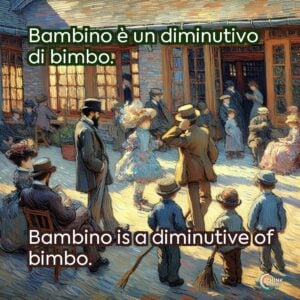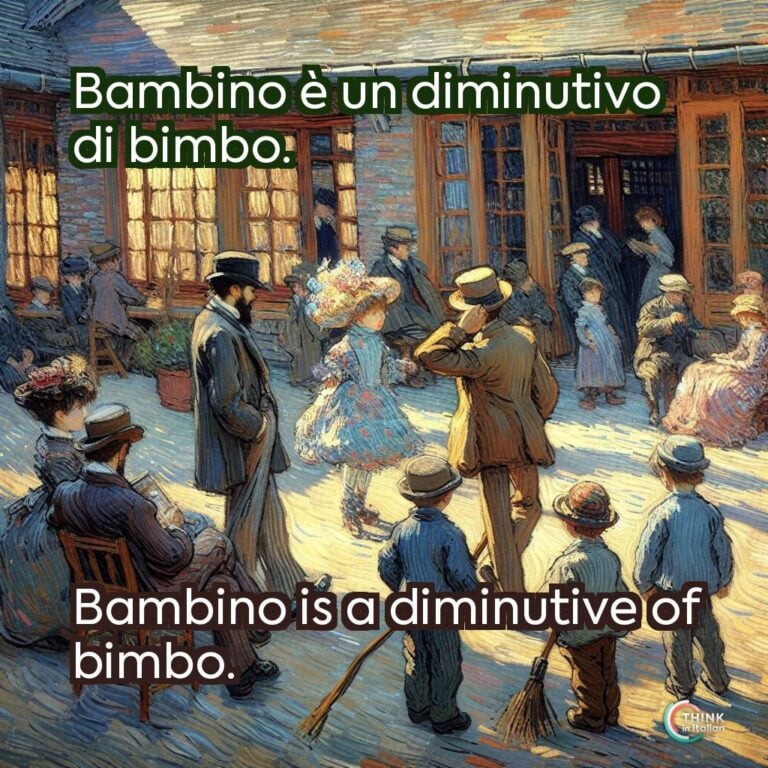“Parole Alterate” in Italian
The expression parole alterate (altered words) refers to those nouns and adjectives that have been modified from their base form to convey other shades of meaning. For instance, have a look at the following example:
Simone ha trovato un gattino per strada.
Simone found a kitten on the street.
In Italian, this happens by means of specific suffixes that are attached to the root word. Depending on the type of suffix, altered words in Italian can be grouped into four main classes: diminutives, augmentatives, pejoratives, and endearments.
Of course, since we are dealing with nouns and adjectives, we have to keep in mind that these suffixes change based on the gender and the number of the noun itself.
Sometimes, the gender of the altered word changes from the gender of the original noun, and some words require a so called interfix, that is, an extra syllable. This happens arbitrarily, which might makes things a bit hard for Italian learners, but do not worry! I will list these exceptions for you.
Types of Parole Alterate
Diminutivi
Diminutivi (diminutives) are used to indicate small size, affection, or something that is cute. There are three suffixes that are used to create Italian diminutives: -ino, -etto, and -ello.
For example:
- Vaso (vase) → Vasetto (small vase)
- Casa (house) → Casina or casetta (small house)
- Bicchiere (glass) → Bicchierino (small glass)
- Quaderno (notebook) → Quadernino (small notebook)
- Sorso (sip) → Sorsetto (small sip)
As you can see, some words can have more than one diminutive.
Accrescitivi
Accrescitivi (augmentatives) are used to indicate something large or impressive, sometimes with a nuance of exaggeration. There is one suffix to create Italian augmentatives: -one.
For example:
- Ragazzo (boy) → Ragazzone (big guy)
- Quaderno (notebook) → Quadernone (big notebook)
- Mano (hand) → Manona (big hand)
Dispregiativi
Dispregiativi (pejoratives) express something negative. There is one suffix to create Italian pejoratives: -accio.
For example:
- Libro (book) → Libraccio (bad book)
- Ragazza (girl) → Ragazzacccia (bad girl)
- Giornata (day) → Giornataccia (bad day)
Vezzeggiativi
Vezzeggiativi (endearments) express affection, tenderness, or something sweet. There is one suffixe to create Italian endearments: -uccio.
For example:
- Casa (house) → Casuccia (cute house)
- Caldo (hot) → Calduccio (cozy warm)
- Affare (business) → Affaruccio (nice business)
- Bocca (mouth) → Boccuccia (cute mouth)
How to use Italian Parole Alterate
As I mentioned before, not all altered forms retain the same grammatical gender as the original word. Also, not all words can be altered in every possible form. In fact, some words can take certain suffixes that some others cannot.
Another peculiar aspect I mentioned is the possible presence of an extra syllable in some words when being altered. As promised, here I will list some of the words that show this arbitrary behaviors.
Words that change their gender include:
- Porta (door) → Portone (big door, main door)
- Scatola (box) → Scatolone (bix box)
- Finestra (window) → Finestrone (big window)
- Borsa (bag) → Borsone (big bag)
- Valigia (suitcase) → Valigione (big suitcase)
Words that insert an interfix include:
- Orso (bear) → Orsacchiotto (cute bear, often a teddy bear)
- Lupo (wolf) → Lupacchiotto (cute wolf)
- Furbo (cunning) → Furbacchione (very cunny)
- Cane (dog) → Cagnolino (small dog)
- Libro (book) → Libricino (small book)
- Fiore (flower) → Fiorellino (small and cute flower)
- Pesce (fish) → Pesciolino (small fish)
- Cuore (heart) → Cuoricino (small heart)
- Topo (mouse) → Topolino (small mouse)
- Uomo (man) → Omone (big man)




